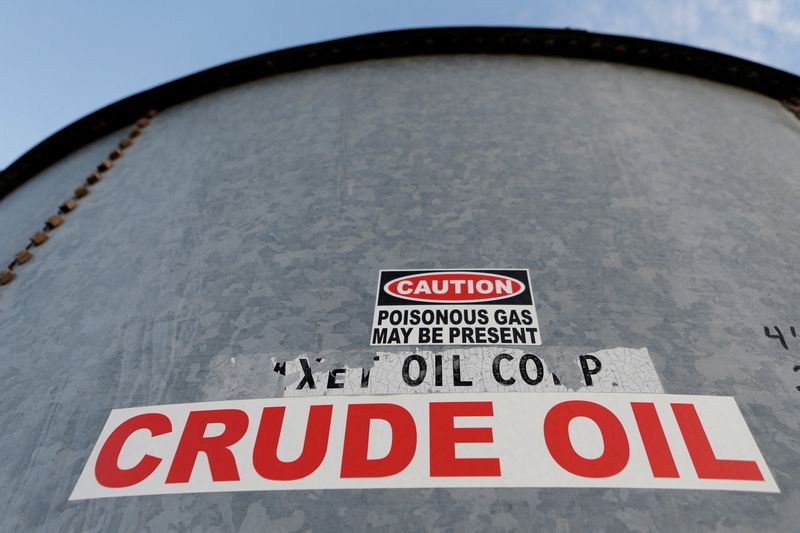By Stephanie Kelly
NEW YORK (Reuters) -Oil prices sank about 6% on Monday alongside equities, as continued coronavirus lockdowns in China, the top oil importer, fed worries about the demand outlook.
Brent crude fell $6.45, or 5.7%, to settle at $105.94 a barrel. U.S. West Texas Intermediate crude fell $6.68, or 6.1%, to settle at $103.09 a barrel. Both contracts have gained about 35% so far this year.
Global financial markets have been spooked by concerns over interest rate hikes and recession worries as tighter and wider COVID-19 lockdowns in China led to slower export growth in the world's No. 2 economy in April.
"The COVID lockdowns in China are negatively impacting the oil market, which is selling off in conjunction with equities," said Andrew Lipow, president of Lipow Oil Associated in Houston.
Crude imports by China in the first four months of 2022 fell 4.8% from a year ago, but April imports were up nearly 7%.
China's Iranian oil imports in April came off peak volumes seen in late 2021 and early 2022 as demand from independent refiners weakened after COVID lockdowns pummelled fuel margins and on growing imports of lower-priced Russian oil.
Wall Street stock indexes fell and the dollar hit a two-decade high, making oil more expensive for holders of other currencies. [MKTS/GLOB]
Saudi Arabia, the world's top oil exporter, lowered crude prices for Asia and Europe for June.
In Russia, oil output rose in early May from April and production has stabilized, Deputy Prime Minister Alexander Novak was cited as saying, after output fell in April as Western countries imposed sanctions over the Ukraine crisis.
EU RUSSIA OIL EMBARGO
Last week, the European Commission proposed a phased embargo on Russian oil, boosting Brent and WTI prices for the second straight week. The proposal needs a unanimous vote by EU members this week to pass.
The European Commission is considering offering landlocked eastern European Union states more money to upgrade oil infrastructure in a bid to convince them to agree, an EU source told Reuters.
"The EU oil embargo will trigger a seismic shift in the European and global crude markets, which Rystad Energy expects could see as much as 3.0 million bpd (barrels per day) of EU crude imports from Russia cut by December 2022 in a full-fledged implementation of the policy," said Bjørnar Tonhaugen, Rystad Energy's head of oil market research.

German officials are quietly preparing for any sudden halt in Russian gas supplies with an emergency package that could include taking control of critical firms, three people familiar with the matter told Reuters.
Japan, top five crude importer, will ban Russian crude imports "in principle", Prime Minister Fumio Kishida said, adding this would take time.